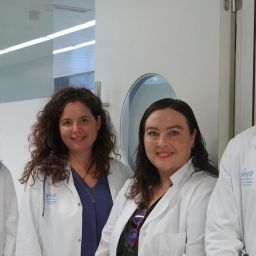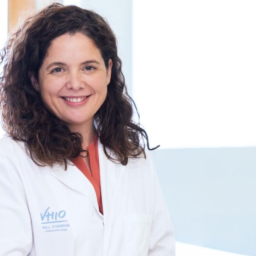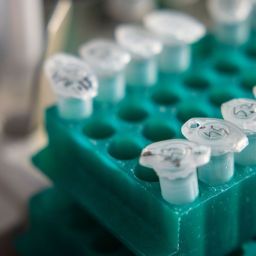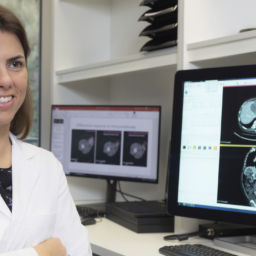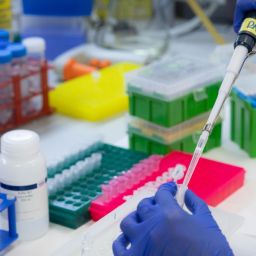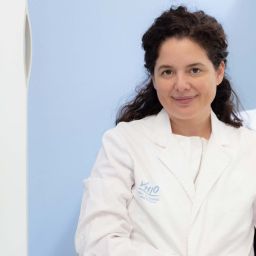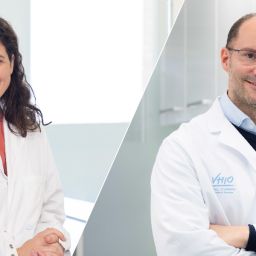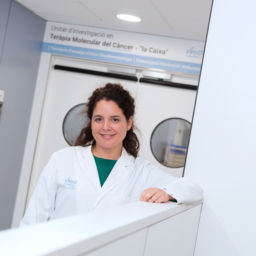
- Throughout 2020 and during the COVID-19 pandemic peaks, the Vall d’Hebron Institute of Oncology’s (VHIO) Research Unit for the Molecular Cancer Therapy (UITM) – “la Caixa” Foundation, located on the Vall d’Hebron Campus, enrolled 1,262 patients across 256 clinical trials. 74 of these studies were initiated during this period. 140 more patients were treated compared to the same period in 2019.
- Despite the challenges posed by COVID-19 and the consequent restrictions imposed on our hospital, the Vall d’Hebron University Hospital (HUVH), activity was successfully maintained, and even surpassed, in order to respond to the needs of our
- Cancer is the second leading cause of death globally, with around 18 million new cases diagnosed and more than 9.6 million cancer-related deaths each year. While cancer survival rates continue to improve, there are still many tumor types with no effective treatments. Clinical trials key to identifying and developing novel therapies against cancers and are only possible at VHIO thanks to the continued support from one of our Institutional Supporters and Patrons, “la Caixa” Foundation.
- Building on the successes of the two previous VHIO- “la Caixa” Institutional 3-year Programs, the new Advanced Oncology Research Program (2020-2023), totalling at 6 million euros, launched at the beginning of 2020.
- Early phase clinical trials (I and II) allow many patients whose disease unfortunately progresses after standard treatments to access novel treatments, and can ultimately lead to the approval of novel, more effective anti-cancer therapies; 30 of which have been approved since the opening of the Unit in 2010.
Barcelona, February 1, 2021.- For many cancer patients, clinical trials represent new hope for the treatment for their respective disease, especially for those who have already tried various therapies without success. As such, continued early clinical drug development, and even increasing the number of patients who meet the criteria to participate in these studies -despite the impact that COVID-19 has had on the healthcare system- has enabled many patients to access treatments that could actually change the course of their disease. As importantly, stoppage of these studies could have had disastrous repercussions.
The fact that research has successfully been maintained throughout these challenging times, has also led to the approval of pending therapies; as opposed to bringing the administrative process to a grinding halt.
Integrated within the Vall d’Hebron Campus, VHIO’s Research Unit for the Molecular Cancer Therapy (UITM) – “la Caixa” Foundation conducts and coordinates highly complex clinical trials with therapies in early development (Phase I and early Phase II trials), focused on innovative targets. From 1 January to 31 December 2020, 1,262 patients were enrolled at this Unit, 560 of whom were new patients starting a clinical trial. 256 clinical studies were conducted, 74 of which initiated during this period.
In comparison, 1,122 patients were recruited in 2019, 499 of whom were new patients starting a clinical trial, and 219 clinical trials were conducted, 54 of which began that year. Therefore, not only were research activities maintained, but also increased in order to serve a greater number of patients.
Elena Garralda, Director of the UITM-“La Caixa” and Principal Investigator of VHIO’s Early Clinical Drug Development Group, said, “Patients treated at this Unit, referred from both the Vall d’Hebron University Hospital and the rest of Catalonia, Spain and other countries, have also been able to benefit during the pandemic from the most innovative and promising and personalized anti-cancer medicines.“
Additionally, treatment was maintained for all patients who were participating in an oncology or haematology clinical trial (of any phase) as well as for those who were undergoing follow-up. Furthermore, despite the pandemic, a record number of active clinical trials (1,365) and new clinical studies (319) were conducted in 2020 across the Vall d’Hebron Campus, which includes VHIO and the Vall d’Hebron Research Institute (VHIR). In 2019 there were 1,313 active clinical trials, and 317 new clinical trials launched.
The Vall d’Hebron Hospital Medical Oncology Department, led by VHIO’s Director, Josep Tabernero, and the VHIO Clinical Trials Office, coordinated by Marta Beltrán, rapidly reorganized all circuits so that patients who were due to start a study, or those who were already enrolled, were not impacted by COVID-19 and could continue with their treatments. Daily in-house organizational meetings and weekly virtual meetings connecting the medical and coordination teams increased in order to assess the status of enrolled patients enrolled as well as candidates to participate in a clinical trial.
“Online visits and the home delivery of oral medications were also scheduled. Since practically all hotels in Barcelona are closed, we organized accommodation for patients and a data monitoring room was set up outside of the hospital to facilitate continuous monitoring. Screening and baseline visits were conducted online and we worked together with the main sponsors, the Spanish Agency for Medicines and Medical Devices and the Spanish Data Protection Agency to establish the source data verification framework,” added Marta Beltrán.
VHIO’s Research Unit for Molecular Cancer Therapy (UITM) – “la Caixa” Foundation: more than a decade of excellence in early clinical drug development
As a direct result of the clinical studies conducted at the UITM-“La Caixa”, since 2012 the FDA has approved 30 new therapies against several tumor types, which are becoming increasingly more targeted thanks to cancer discovery driven by precision medicine in oncology.
Since the Unit was founded in 2010, over 1,300 phase I trials plus Basket studies, and 1,076 phase II trials have been conducted. Over the last decade, more than 7,800 patients have been enrolled in clinical trials. Personalized medicine, targeted therapies, molecular patient screening, and immune-based therapies are key to ongoing progress.
“Total drug development and approval times have fallen from around 8 to 10 years to 2 to 5 years on average. This has direct benefits for the patient, who may have access to new treatments that would otherwise not be available,” concluded Josep Tabernero, VHIO’s Director and Head of the Vall d’Hebron Hospital’s Medical Oncology Department.


